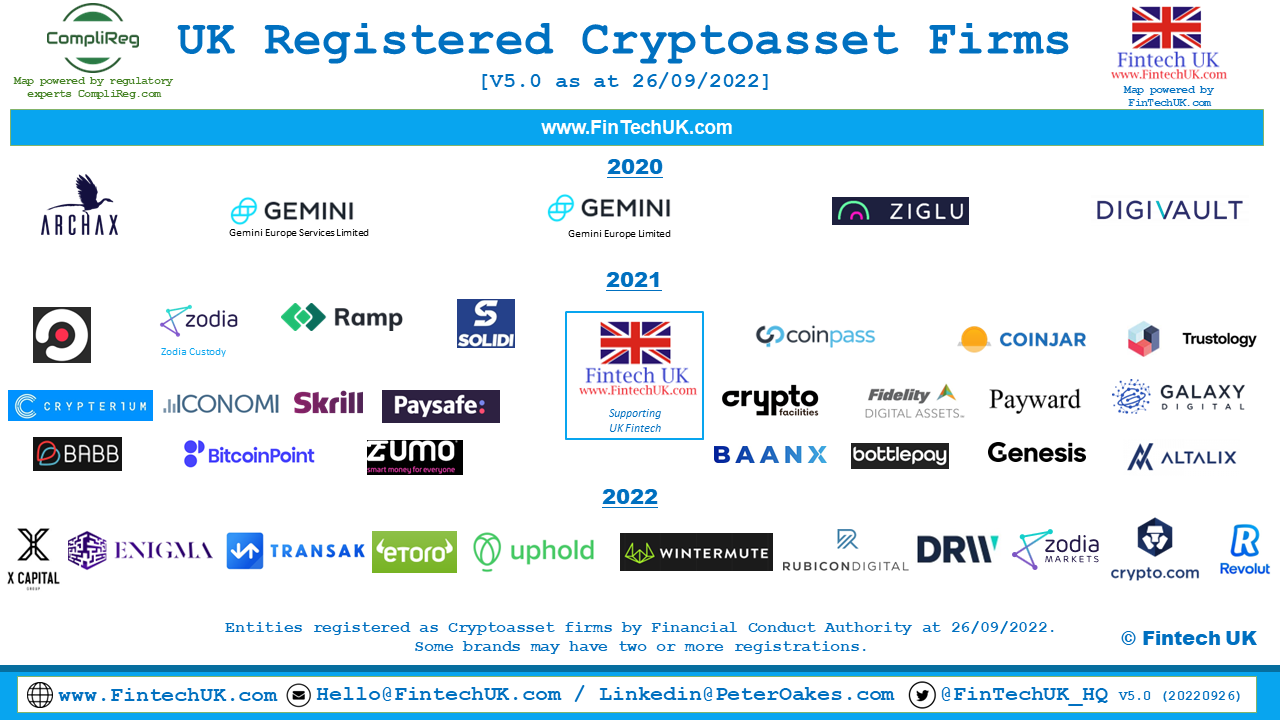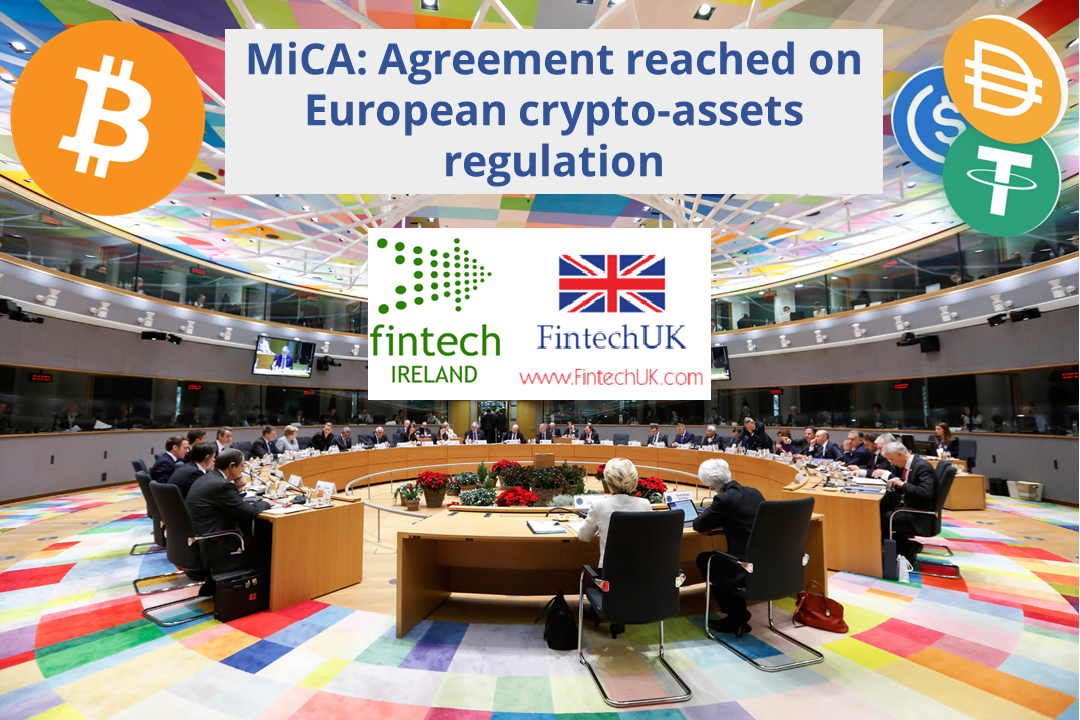If you are are crypto firm seeking regulatory advice or director services, please contact CompliReg for assistance at the details appearing here and check out its VASP registration and other authorisation services here.
Hope you like the Map (Version 5.0)!
There are now 38 registered Cryptoasset firms appearing on the Financial Conduct Authority's (FCA) website as at Tuesday 16th August 2022. Welcome to Revolut. The FCA register records Revolut Ltd registration effective 26th September 2022. Did you know that Martin Gilbert is Chairman of Revolut Ltd. He is the Chairman of AssetCo plc which is authorised by the FCA.
Revolut has had quite a journey to be come a FCA registered cryptoasset firm. As far as we can tell, while other smaller and less resourced crypto firms were getting through the FCA process, Revolut Ltd sat on the Temporary Permission list since at least from December 2021. But all is well that ends well, right?
As we continue to Map registered Cryptoasset firms, expect to see certain logos appear more than once as several brands will be registering several Cryptoasset firms for different purposes, such as - for example - services for (1) trading and (2) custody. An example of this is in fact Zodia. While Zodia Markets (UK) Limited was registered on 27 July 2022, its affiliate Zodia Custody Limited was registered effective 15 July 2021.
At the time we released Version 1, there were 218 (thereabouts) unregistered cryptoasset business listed on the UK FCA's website that appear, to the FCA, to be carrying on cryptoasset activity, that are not registered with the FCA for anti-money laundering purposes. As of today (26 September 2022), that number is steady at 246.
The firms thus far registered by the FCA include:
2020: Archax Ltd, Gemini Europe Ltd, Gemini Europe Services Ltd, Ziglu Limited, Digivault Limited,
2021: Fibermode Limited, Zodia Custody Limited, Ramp Swaps Limited, Solidi Ltd, Coinpass Limited, CoinJar UK Limited, Trustology Limited, Commercial Rapid Payment Technologies Limited, Iconomi Ltd, Skrill Limited, Paysafe Financial Services Limited, Crypto Facilities Ltd, Fidelity Digital Assets LTD, Payward Limited, Galaxy Digital UK Limited, BABB Platform Ltd, BCP Technologies Limited, Zumo Financial Services Limited, Baanx.com Ltd, Bottlepay Ltd, Genesis Custody Limited, Altalix Ltd,
2022: X Capital Group Limited, Enigma Securities Ltd, Light Technology Limited, eToro (UK) Ltd, Uphold Europe Limited, Wintermute Trading LTD, Rubicon Digital UK Limited, DRW Global Markets Ltd, Zodia Markets (UK) Limited, Foris DAX UK Ltd (aka Crypto.com) and Revolut Ltd.
And of course the Revolut group is still pursing its much talked about bank authorisation in the UK.
We are looking forward to seeing how many more will be registered before the end of the year.
The post accompanying Version 5 appears at:
- CompliReg: https://complireg.com/blogs--insights/revolut-finally-joins-the-uk-registered-cryptoasset-map-version-50-monday-26th-september-2022
- Linkedin: https://www.linkedin.com/posts/peteroakes_cryptoasset-fca-cryptoasset-activity-6980821130584412160-_63O?utm_source=share&utm_medium=member_desktop
Further Reading:
Version 1 of the Map and the Blog of 20 December 2021 - located here
Version 2 of the Map and the Blog of 18 July 2022 - located here
Version 3 of the Map and the Blog of 28 July 2022 - located here
Version 4 of the Map and the Blog of 20 September 2022 - located here
List of Unregistered Cryptoasset Businesses as at 20 September 2022 - located here

